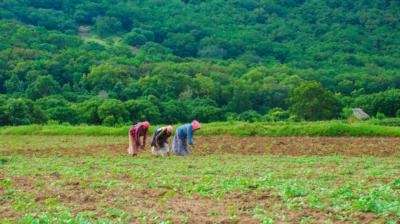Improving the Integrated Rural Development Projects in Western Ethiopia
Many parts of Western Ethiopia are among the poorest areas in the world, with poor health conditions, gender discrimination, lack of infrastructure and formal institutions and where many suffer from chronic undernourishment. Significant depletion of resources both at the community and the household levels, severe environmental degradation, and population growth rates exceeding economic growth have made it increasingly difficult for households to cope with low agriculture production and recover from crop failure, seasonal food shortages, and other crises. Population pressure and strained natural resource base due to termite infestation and soil erosion adds to the challenge of making people cope with adverse conditions. The situation is made even worse by the climatic variability, and recurring droughts have caused severe hardship for large shares of the population in this area.
In a response to these challenges, the Norwegian Missionary Society (NMS) is supporting three integrated rural development projects (IRDPS) in Western Ethiopia addressing some of the most serious challenges for the livelihoods in this area - sanitation and hygiene, gender equality, agricultural productivity, clean water provision, water management and income generation. The NMS aims to improve and consolidate the monitoring and the follow up of the IRDPs and strengthen the communication process with its partners. It is suggested in the terms of Reference (ToR) for this study that organizing these projects into one program may contribute to these aims.
The main aim of this study is
(1) to assess whether it is feasible to organise the NMS-supported IRDPs into a program and point to strengths and weaknesses of such a structure,
(2) to suggest improvements in impact measurement of these projects, and
(3) to identify issues that may strengthen the development impact of the IRDPs.






